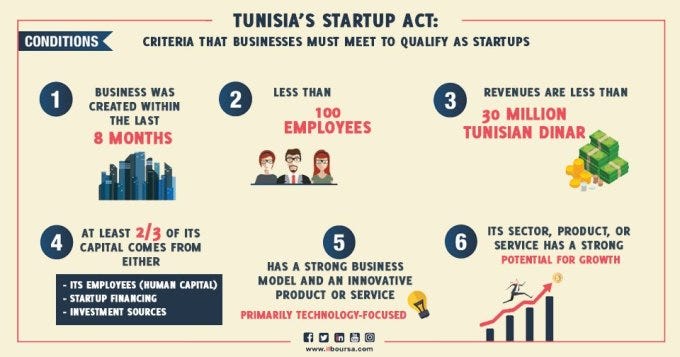Republic of Guinea Proposes A Law To Label and Support Startups
There is hope for startups in the West African country of Guinea. The country’s ministers in charge of Higher Education, Posts, Telecommunications and Investments have made a joint communication on digital transformation and the capacity for innovation of the public and private sectors in the country, part of which is that the country would soon formulate a comprehensive policy (Startup Act, possibly?) that would create labels for startups as well as support them.
“Industrial revolutions are always marked by structural changes which generate big winners and big losers. Current changes are already disrupting the classic world economic order following new economic models, which arise from disruptive technologies such as “uberization”, artificial intelligence, the sharing economy, massive data processing, digital financial inclusion, e-commerce, social networks, etc…Guinea is condemned to innovate if it does not wish to continue in underdevelopment,” the ministers said in a joint communique.
Here Is What You Need To Know
- According to the ministers, the challenge for Guinea is to move from the position of a simple consumer to that of an actor capable of producing goods and services (machines, applications and content) and to improve its capacity to innovate to accelerate transformation. digital economy.
- Consequently, the ministers proposed to create an incentive policy through the creation and promotion of startups, label them and support them, promote innovative private investments particularly in the modernization of their administration and to adopt a law, as well as hold the Transform-Africa Summit on digital technology in Guinea.
- Created to take charge of ensuring the implementation of this is an enlarged inter-ministerial technical committee that will harmonize and coordinate government actions in the field of innovation. The work of this committee would lead to the development of a national innovation strategy by involving representatives of civil society.
- Priorities, according to the ministers, would be given to sectors with high potential, which include: agriculture, mobility, health, electronic and mobile commerce and electronic payment and mobile.

Read also: Mauritius Joins Seychelles As The Only High-Income Countries In Africa
- Generally, the ministers called for the adoption of a policy to promote innovation.
- This policy, according to them, could be structured around the following three axes:The definition of project selection criteria by priority sector; The strategic reorientation of public investments; Promotion of the private sector to make it the engine of innovation.
- They underlined that for reasons of efficiency and economic pragmatism, the innovation promotion policy must define priority sectors in which it would be more relevant to concentrate investments because of their economic or social importance and the capacity to reach them.
- The Ministers indicated that Guinea still has the possibility of being a technological relay country. The objective is to make the national territory a technological oasis of the sub-region by promoting the emergence of hubs and an ecosystem that creates innovation in agriculture, health, education, transport, electronic commerce and electronic banking.
- Given the importance of digital issues, they further recommended the establishment of an innovation working group representative of the ecosystem.
Guinea is a country in West Africa, with a population of around 12 million. It is also a low-income economy with GDP per capita of around $878. The country had about 2.4 million internet users, representing about 18.4% of the population as of December, 2019.
Guinea is richly endowed with minerals, possessing an estimated quarter of the world’s proven reserves of bauxite, more than 1.8 billion metric tons (2.0 billion short tons) of high-grade iron ore, significant diamond and gold deposits, and undetermined quantities of uranium.
The proposed policy would have the effect of adding Guinea to the list of African countries with favorable legal frameworks for their startups.
Charles Rapulu Udoh

Charles Rapulu Udoh is a Lagos-based lawyer who has advised startups across Africa on issues such as startup funding (Venture Capital, Debt financing, private equity, angel investing etc), taxation, strategies, etc. He also has special focus on the protection of business or brands’ intellectual property rights ( such as trademark, patent or design) across Africa and other foreign jurisdictions.
He is well versed on issues of ESG (sustainability), media and entertainment law, corporate finance and governance.
He is also an award-winning writer.

